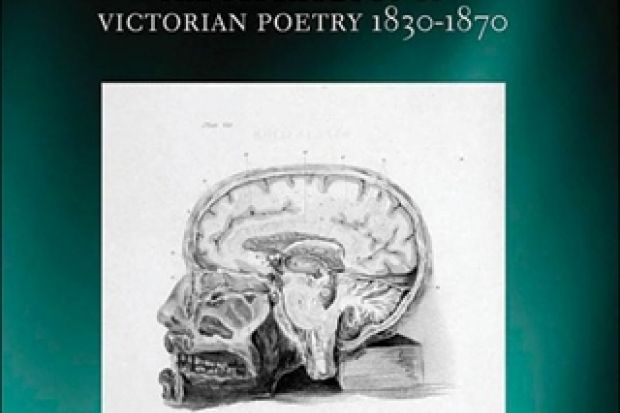In his 1800 preface to Lyrical Ballads, which was to become the Romantic poetic manifesto, William Wordsworth replaced the traditional generic opposition between poetry and prose with that between poetry and science. He also promoted a concept of poetry as “the spontaneous overflow of powerful feelings” that would shape the British public’s poetic taste for the ensuing century. Yet the most exciting work of the next generation of poets was to challenge both Wordsworth’s privileging of subjective self- expression and his distancing of poetry from science. As Gregory Tate argues, major Victorian poets drew especially on the scientific analysis of mental processes as developed in the new discipline of psychology. The purpose of their poetry was not simply to express emotion but also to scrutinise the workings of the mind.
The debt of Victorian dramatic monologues depicting abnormal mental states to 19th-century psychiatry has been examined in earlier studies. Tate’s interest lies in the less extreme exploration of the psyche, the kind of introspective poetry that Matthew Arnold described as “the dialogue of the mind with itself”. Tate not only shows how Victorian poets adopted the vocabulary of contemporary writings on psychology, but also documents how writers of books on psychology used quotations from poetry to validate their analytical models.
The Poet’s Mind is unapologetically old canon in its choice of authors, focusing on four “big” white, middle-class males: Tennyson, Browning, Arnold and Clough. The acute analysis of mental processes that they undertake in their major works fully justifies this textual choice. Tate’s look at George Eliot’s poetry further supports the pre-eminence of the other four. While Eliot’s engagement with the materialist psychological writings of her partner, George Henry Lewes, is reflected in her much studied, quasi-scientific analysis of characters in her novels, her poetry remains disappointingly traditional in its preference for an essentially still Wordsworthian, subjectivist and metaphysical concept of lyricism.
In her unsuccessful struggle to reconcile the scientific analysis of mental processes with a metaphysical idea of the self, Eliot is not so different from the other poets. Tennyson and the young Browning in particular are torn between the competing concepts of the metaphysical soul and the physical mind. Yet in the poems In Memoriam and Maud, Tennyson manages to strike the precarious balance of conceptualising the mind as at once a spiritual self and a physical brain. Unsurprisingly for poets brought up on Romantic poetry, all four male poets show the influence of David Hartley’s associationist psychology, with its grounding of thought in physical sensation; but there are also resonances of the contemporary physiological psychology of the likes of Herbert Spencer and Lewes.
The younger poets Arnold and Clough are more sceptical about the rightness of psychological analysis in poetry than Tennyson, and it is the Browning of the 1860s who shows the fullest commitment to poetry as the medium for psychological exploration. This decade, which sees the gradual acceptance of scientific psychology as a poetic subject, marks, in Tate’s analysis, the high point of Victorian psychological poetry.
Tate’s lucidly argued study relies on close attention to the poets’ choice of terminology, such as the slippery term “soul” or the divergent uses of “mind”. He is always conscious of the texts’ status as poetry and makes some fine points about the use of metrical devices, especially in Clough’s work. His book is a very readable and timely reminder that Victorian poets’ engagement with contemporary science went well beyond that staple of undergraduate courses, evolutionary theory.
The Poet’s Mind: The Psychology of Victorian Poetry 1830-1870
By Gregory Tate
Oxford University Press, 224pp, £60.00
ISBN 9780199659418
Published 8 November 2012
Register to continue
Why register?
- Registration is free and only takes a moment
- Once registered, you can read 3 articles a month
- Sign up for our newsletter
Subscribe
Or subscribe for unlimited access to:
- Unlimited access to news, views, insights & reviews
- Digital editions
- Digital access to THE’s university and college rankings analysis
Already registered or a current subscriber?




